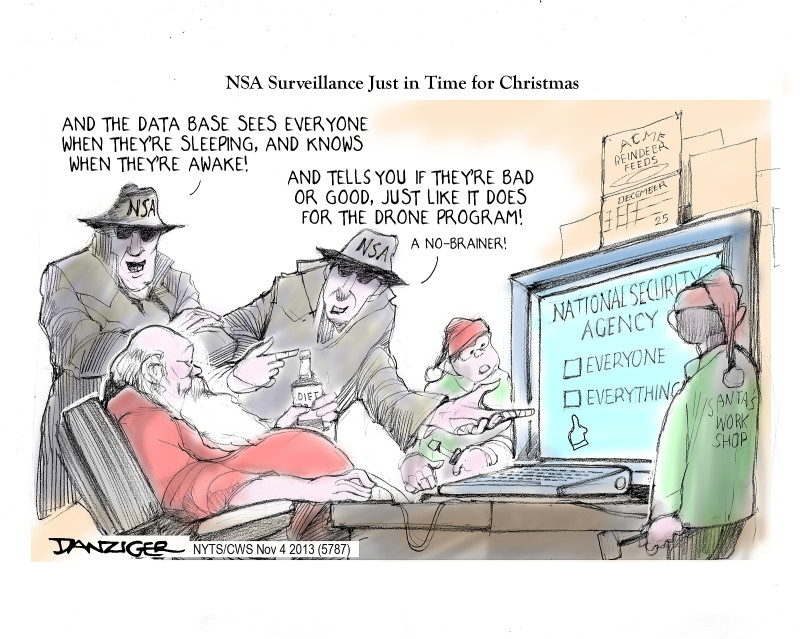Journalists could learn from Kurtz’s, Nielsen’s mistakes
Media coverage of NBA free agent Jason Collins’ announcement that he is gay led to a number of revelations about the state of media and stories about the LGBTQ community. It also led to some fascinating coverage.
Two particular pieces from two ends of the media spectrum provided teachable lessons for working journalists at every level. Howard Kurtz, former Washington Post media critic, host of CNN’s “Reliable Sources” and former media critic for the website www.thedailybeast.com, reminded journalists at all levels how to stand up and be responsible for a mistake.
The mistake occurred early in the week, when Kurtz wrote an article for the Daily Beast that called out Collins for being engaged. The problem was that Collins already had admitted to being engaged and had explained the situation. Kurtz claimed he did not read the entire story and missed the part where Collins talked about being engaged. Finding out that he was wrong, Kurtz originally tried to play off his mistake, writing that Collins downplayed the engagement – again wrong. Kurtz finally gave a full retraction while, at the same time, the Daily Beast announced he was leaving their organization. (Read the Washington Post story here.)
Controversy surrounded Kurtz, who, as a media critic on CNN, found himself in a precarious position with a live show on Sunday morning. Kurtz responded by opening the show with an honest apology for what he did, saying that, as a longtime critic of media, he must be held to a higher standard. (Read one account here.) Kurtz followed by asking two media critics – National Public Radio’s David Folkenflik and Politico’s Dylan Byers – to interview him on his own show. The result was an exercise of extreme humility, as Kurtz found himself getting grilled over multiple career mistakes. It was riveting television. Seldom does one see a member of media’s elite humble himself as thoroughly as Kurtz did.
The effects of Kurtz’ mistake, and his apology, will be determined in the coming months. But no one can deny that Kurtz gave quite a performance.
On the other end of the spectrum, journalists who work at smaller newspapers also had a lesson imprinted on them. That lesson is that no matter how small the paper, if a writer produces a piece of bigoted, homophobic work, the national press may pick it up. Once that happens, the legacy of that writer – and the institution that published the piece – is marred by that piece of work.
Brian Nielsen of Illinois' Charleston Times-Courier/Mattoon Journal Gazette and the publisher, Carl Walworth, found that out last week. Nielsen wrote a column about Collins in which he said that Collins is not a hero for coming out as gay. He c
alled Collins’ decision to come out a “lifestyle choice.” Then he started piling on the hate. Nielsen compared Collins with former NBA player Shawn Kemp, who fathered a large number of illegitimate children, basically insinuating that Collins must be promiscuous and irresponsible because he is gay. He followed that by comparing Collins with golfing superstar Tiger Woods, who had a number of marital affairs but apologized for his transgressions. Nielsen wrote that he had not heard of Collins’ apology yet. (Read Nielsen’s column here.)
Nielsen’s comments normally would stay confined to those who read the Times-Courier or its sister paper, the Journal Gazette in Mattoon, a paper at which I used to work. But, in this instance, Nielsen’s column was picked up by Jim Romenesko’s website. (Read Romenesko’s story here.) Then the website Salon.com picked up the story. Nielsen was vilified. In his story, Nielsen wrote that Walworth allowed the story to run. Walworth ran an apology for his decision a day later. (Read Walworth’s apology here.)
Walworth’s apology was not on a par with Kurtz’s. Then again, neither Walworth nor Nielsen expected this story to go national. That was the mistake Walworth made. He failed to look at Nielsen’s story as anything but a locally printed story. Anything that goes on the Web has the chance to transcend locality. And in the Twitterverse, readers are quick to pile on with their opinions.
Nielsen’s story led to a negative image of readers of both the Charleston Times-Courier and the Mattoon Journal Gazette. It was damaging to more than just Nielsen, who will forever after be judged from this one piece of work; it was damaging to the reputation of both the Charleston Times-Courier and the Mattoon Journal Gazette.
Kurtz knows the media landscape and how to navigate in the real-time world of social media. His apology was something that seldom happens and should happen more. He understood just how much his reputation and credibility were damaged by his mistakes. Nielsen and Walworth are just learning.
Journalists at all levels should pay attention to what happened last week. Every story that an editor or publisher puts online has the potential to go national. Every piece that is written needs to be vetted. If the writer isn’t able to check his or her bias at the door, someone higher up has to be able to step in and make that decision, because you never know what might go national. And once credibility is lost, it becomes much harder to regain.
Lambert is a contributor to the Gateway Journalism Review and used to work at the Mattoon Journal Gazette with Walworth (and right next to Nielsen).

